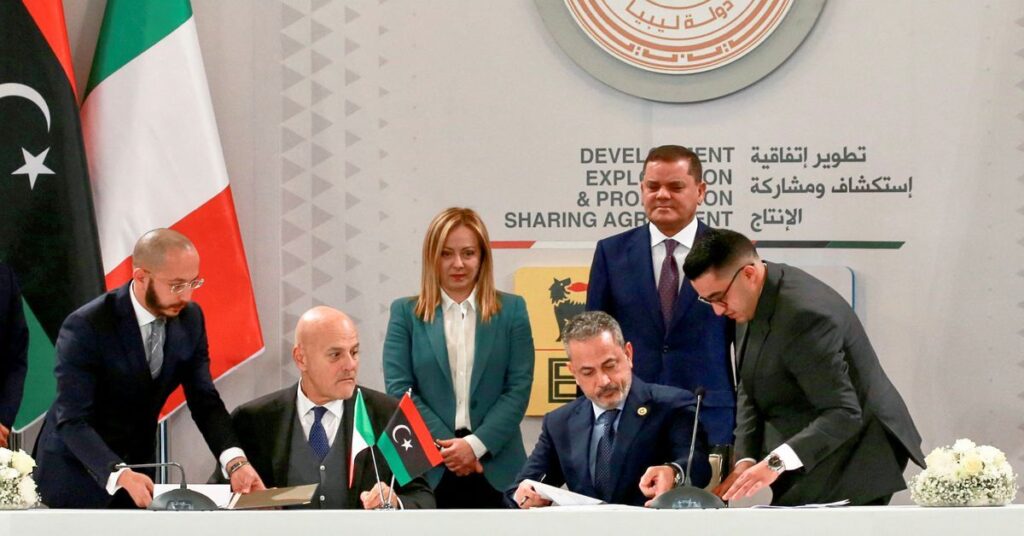The suspension of Libya’s former Oil Minister Mohamed Aoun has shed light on the corruption and political wrangling plaguing the country’s oil and gas sector, particularly regarding the development of the massive NC-7 Hamada gas field.
According to the report by S&P Global Commodity Insights, Aoun had previously questioned the costs and investor selection process for the Hamada project, arguing that the cost recovery provisions were too generous for the foreign operators involved, which include Italy’s Eni, the UAE’s ADNOC, and France’s TotalEnergies.
Aoun’s successor, Khalifa Abdul Sadiq, is expected to be more accommodating towards the National Oil Company (NOC) and the foreign investors, as he is an associate of the nephew of Prime Minister Abdul Hamid al-Dbeiba, the head of the Tripoli-based Government of National Unity.
The report notes that the rift between the oil ministry and the NOC under Aoun’s leadership had been an important factor in holding up much-needed foreign direct investment in Libya’s hydrocarbon sector. “Abdul Sadiq will probably seek to withdraw complaints which were launched by Aoun, against various deals, including the Waha and Hamada projects, indicating Abdul Sadiq’s appetite to work alongside NOC rather than against it,” said Jessica Leyland, a senior S&P Global analyst.
However, the broader issue of corruption within the Dbeibeh government remains a significant challenge. The report highlights that Libya’s fuel subsidy and crude-for-fuel swap arrangements have opened new avenues for corruption, with Libyan fuel even being smuggled into neighboring countries.
The political turmoil and the ongoing struggle for control over Libya’s oil wealth continue to hamper the country’s efforts to revive its crucial energy sector and attract much-needed foreign investment. Resolving the corruption and governance issues surrounding projects like the NC-7 Hamada field will be crucial for Libya’s economic recovery and stability, but will require tackling the deep-rooted ties between the Tripoli-based government and the NOC leadership.
